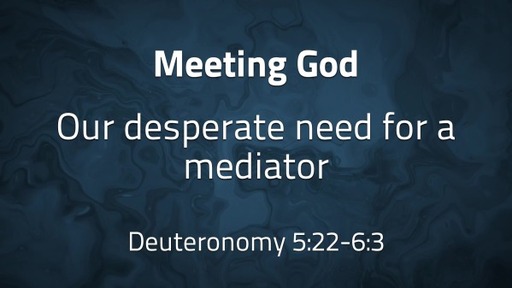“These words the Lord spoke to all your assembly at the mountain out of the midst of the fire, the cloud, and the thick darkness, with a loud voice; and he added no more. And he wrote them on two tablets of stone and gave them to me. And as soon as you heard the voice out of the midst of the darkness, while the mountain was burning with fire, you came near to me, all the heads of your tribes, and your elders. And you said, ‘Behold, the Lord our God has shown us his glory and greatness, and we have heard his voice out of the midst of the fire. This day we have seen God speak with man, and man still live. Now therefore why should we die? For this great fire will consume us. If we hear the voice of the Lord our God any more, we shall die. For who is there of all flesh, that has heard the voice of the living God speaking out of the midst of fire as we have, and has still lived? Go near and hear all that the Lord our God will say, and speak to us all that the Lord our God will speak to you, and we will hear and do it.’
“And the Lord heard your words, when you spoke to me. And the Lord said to me, ‘I have heard the words of this people, which they have spoken to you. They are right in all that they have spoken. Oh that they had such a heart as this always, to fear me and to keep all my commandments, that it might go well with them and with their descendants forever! Go and say to them, “Return to your tents.” But you, stand here by me, and I will tell you the whole commandment and the statutes and the rules that you shall teach them, that they may do them in the land that I am giving them to possess.’ You shall be careful therefore to do as the Lord your God has commanded you. You shall not turn aside to the right hand or to the left. You shall walk in all the way that the Lord your God has commanded you, that you may live, and that it may go well with you, and that you may live long in the land that you shall possess.
“Now this is the commandment—the statutes and the rules—that the Lord your God commanded me to teach you, that you may do them in the land to which you are going over, to possess it, that you may fear the Lord your God, you and your son and your son’s son, by keeping all his statutes and his commandments, which I command you, all the days of your life, and that your days may be long. Hear therefore, O Israel, and be careful to do them, that it may go well with you, and that you may multiply greatly, as the Lord, the God of your fathers, has promised you, in a land flowing with milk and honey.

